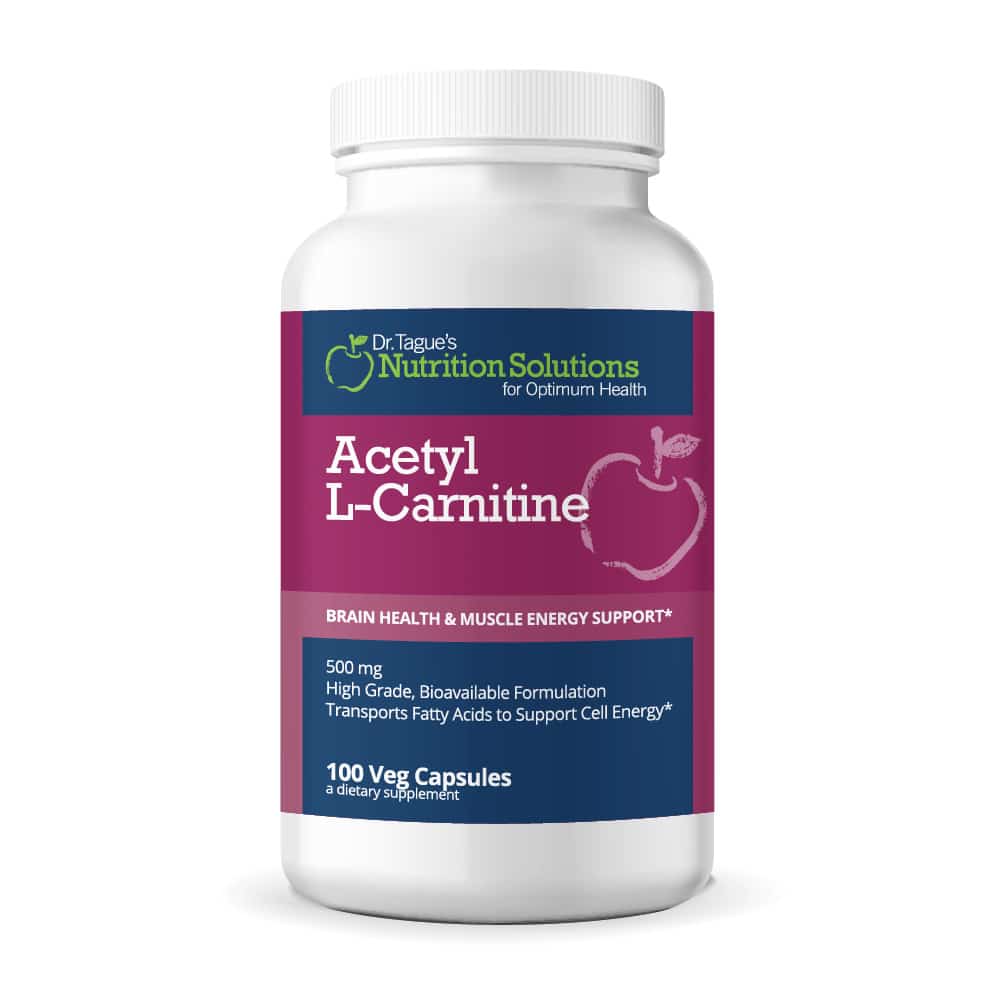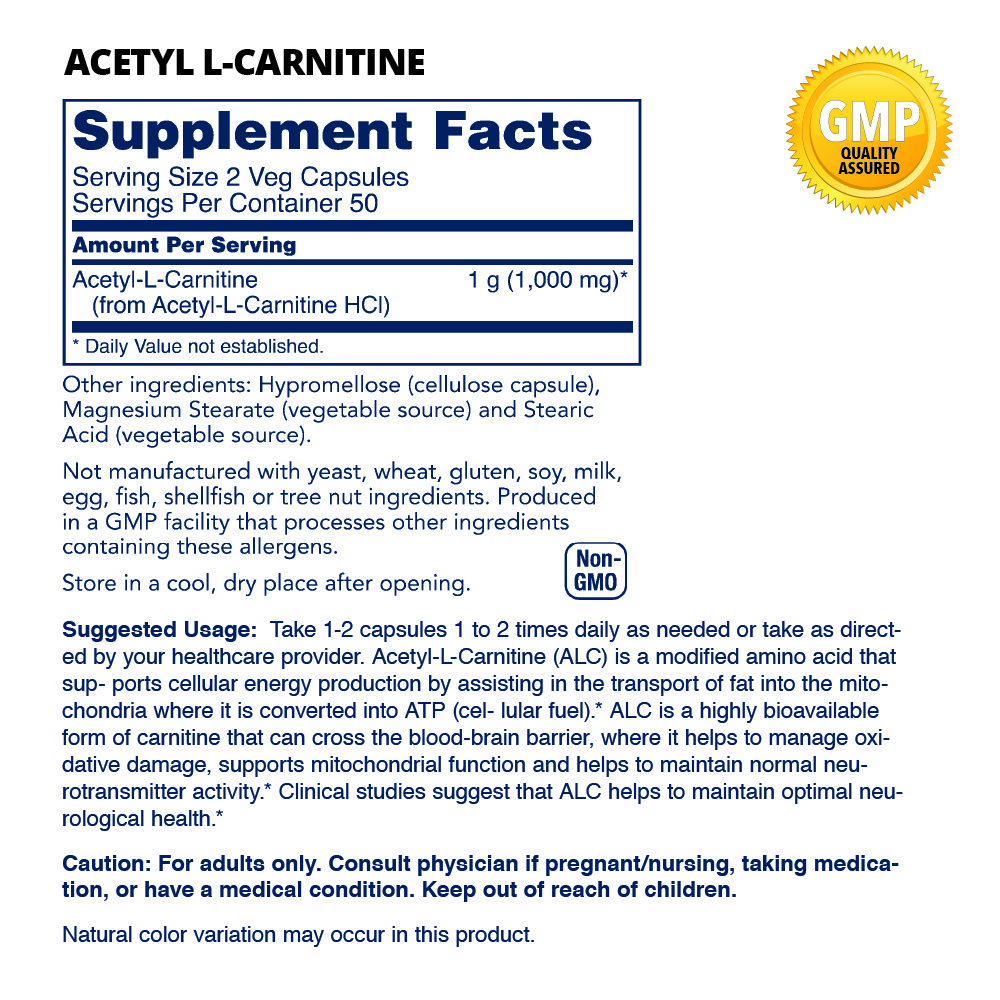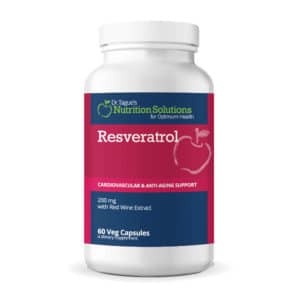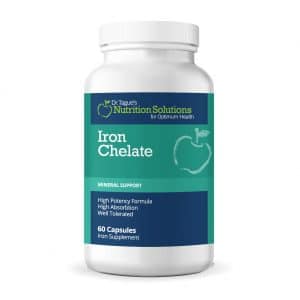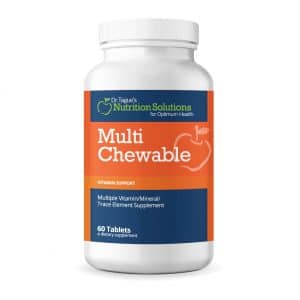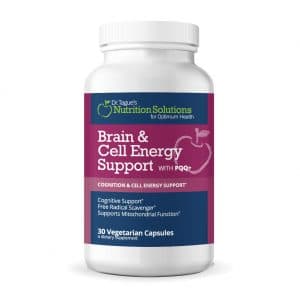Acetyl L-Carnitine at a glance*
- Nutrient that moves fats into cells for energy use.
- Studies show improved energy, muscle mass and muscle function.
- Studies show improved mental function.
- Fights high glucose levels.
- Has been used successfully for treatment of erectile dysfunction.
Acetyl L-Carnitine
Carnitine, produced in our bodies and a natural component of meat and dairy protein, is a very interesting nutrient. Carnitine participates in many cell activities in the brain, muscles, and heart. Carnitine is well known for helping move fatty acid molecules (fats) from the blood to the inside of cells into mitochondria where they can be metabolized into useful energy.
Acetyl L-Carnitine is a particular type of carnitine that is highly absorbable and useful to the body.
Mightier Mitochondria
Mitochondria are your cell “power plants” – and every cell has one, at least one. Cells that require lots of energy have many mitochondria, e.g. muscle cells. Mitochondria produce ATP, which are the energy currency of all cells. L-Carnitine transports fatty acids into the mitochondria where they are metabolized into ENERGY (i.e. fat is “burned”). So, L-Carnitine helps fats metabolize into energy, which also means it makes the mitochondria better at energy production. This may mean improvements in physical energy, mental capacity, muscle function (esp. heart muscle function), and blood circulation.
Shown to combat Mental Decline and Aging
Research suggests Acetyl L-Carnitine plays an important role in the function of neurons (brain cells). It does this through mechanisms such as improving transmission of healthy brain messenger compounds, supporting energy production, preventing brain cell death, reducing oxidative stress and protecting brain cells from toxic medications. Studies, in the elderly especially, have shown supplemental L-Carnitine to improve mental function, improve muscle mass and increase physical ability, e.g. walking capacity.
Shown to Regenerate Nerves
Metabolic syndrome and type 2 diabetes are two conditions that need to be fought aggressively. The consequences of poor control of these conditions can result in serious consequences such as nerve damage (neuropathy), vision loss, and kidney failure. These complications are due to high blood sugar levels that damage blood vessels over time. Researchers have used Acetyl L-Carnitine to help reverse peripheral nerve damage. Acetyl L-Carnitine does this by improving blood and oxygen supply throughout the body and enhancing the function of mitochondria.
Awakens Cells to Glucose (Blood Sugar)
A 2007 article in the American Journal of Clinical Nutrition reported that supplemental L-Carnitine improved insulin sensitivity in persons with and without type 2 diabetes! L-Carnitine seems to stimulate glucose (blood sugar) uptake into cells, so there is less sugar floating outside cells in the blood. In that sense it can help protect blood vessels from damage caused by high blood sugar levels.
Why “Acety L-Carnitine” and Not Just Carnitine?
Acetyl L-Carnitine readily crosses the blood-brain barrier. Translation: it is highly absorbed and transported. There are a couple forms of carnitine available, but Acetyl L-Carnitine is recommended and is the form used for Dr. Tague’s Nutrition Solutions. “Another form of carnitine, D-carnitine, should not be used as it may compete with other forms of carnitine and cause symptoms of carnitine deficiency.”
Research involving Acetyl L-Carnitine shows promise in:*
- Degenerative brain diseases (dementia, alzheimer’s)
- Muscle decline from aging (sarcopenia), with 8.4 pound muscle gain in one study on 2 grams/day
- Enhanced fat reduction (about 4 pounds of fat lost on 2 grams/day in elderly individuals)
- Angina, heart attack, heart failure
- Peripheral neuropathy (nerve damage)
- Sexual dysfunction, like erectile problems
- Fatigue, especially muscle fatigue, with improved endurance
- Depression
- Insulin resistance and high blood sugars
- Lower cholesterol levels
Dosage Recommendations
Suggested Usage: Take 1-2 capsules 1 to 2 times daily as needed or take as directed by your healthcare provider.
Acetyl-L-Carnitine (ALC) is a modified amino acid that supports cellular energy production by assisting in the transport of fat into the mitochondria where it is converted into ATP (cellular fuel).* ALC is a highly bioavailable form of carnitine that can cross the blood-brain barrier, where it helps to manage oxidative damage, supports mitochondrial function and helps to maintain normal neurotransmitter activity.* Clinical studies suggest that ALC helps to maintain optimal neurological health.*
Precautions & Safety
For adults only. Consult physician if pregnant/nursing, taking medication, or have a medical condition.
Those with low or borderline low thyroid levels that are not treated and controlled should not take Acetyl L-Carnitine, as L-Carnitine supplementation may block the function of thyroid hormone.
Keep out of reach of children.
Bruce Ames M.D. Life Extension, Aug 2011
J Am Coll Nutr, vol 18, 1999
Am J Clin Nutr, vol 86, 2001
ConsumerLab.com 2009
Health & Healing, vol 15, 2005
